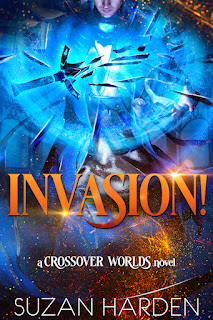The KU drama continued over the course of the weekend. Once again, I'm flabbergasted by the rudeness and the shortsightedness of some of my fellow writers.
After the last eleven years, hell, out of the last fifty years, I shouldn't be surprised by human behavior. But I still am.
First of all, what works for someone else's career may not work for yours. Screaming at the person who notes that X works for him does nothing for either of you. If X doesn't work for you, that's fine. Turn around, walk away, and go do Y, which works for you. But X may work for someone else. You don't know about the third party, and you're not saving him by insisting that he do Y. Let the third party make that decision. Ask yourself this--do you really want the third party to scream at you the way you scream at the first person?
Then there's the argument of what's better--novels or short stories. Why is this even a question now?
For a long time under the 20th century publishing structure, a writer could sell novels to the big publishing houses or short stories to the magazines. There wasn't a whole lot of in between areas for things like novellas. Most of these strictures were based on the optimal return on investment for the paper the stories were printed on.
Now? With electronic publishing, the writer can write whatever length they please. Except now, I see a bunch of writers yelling at each other over who's getting screwed the worst over the recent reimbursement changes to KU?
There's one teensy problem with their analysis. They are equating "buy" reimbursement with "borrow" reimbursement.
WTF?
Under the pre-digital system, a library paid for a book ONCE. Patrons of the library could borrow it as many times as they wished. Likewise under the old system, the buyer bought the book ONCE, and she could read over and over again. Or trade it in at the used book shop. In none of these cases, did the original author see an additional penny of income.
Now? Now, we can get paid for nearly every borrow through Amazon, which is FANTASTIC! But it's also where the bitching comes in.
A lot of folks gamed KU 1.0 by only listing shorts and chopped up novels, so they received far more money for borrows than for sales. Now with KU 2.0, Amazon pays for pages read, which means if you don't write a damn good story, regardless of the length, the writers will be lucky to get a penny or two out of the deal.
Contrary to popular belief, this isn't about length, or getting screwed by a big company. It's about giving the reader a quality experience. Something I think a lot of my fellow writers have forgotten.
Reminded of Something…
-
Backlist Memories… Not a part of my branding series, just me reminding
myself of something… Here is the story. Fact, at the moment Kris and I have
about 1,...
20 hours ago


















No comments:
Post a Comment